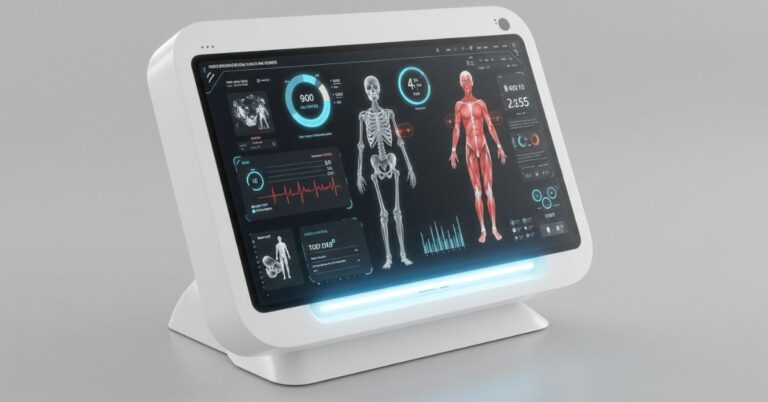Remedial massage is a therapeutic approach designed to treat specific muscle pain and discomfort. Unlike general relaxation massages, remedial massage focuses on addressing the underlying causes of pain, enhancing mobility, and promoting faster recovery from injuries.
Whether you’re an athlete, an office worker, or someone dealing with chronic pain, remedial massage can be a crucial part of your health and wellness routine. But when is the right time to book a remedial massage? Here are six key moments when scheduling a session could be particularly beneficial.
1. After Sustaining an Injury
Why It Matters
Injuries, whether from sports, accidents, or overexertion, can leave muscles and soft tissues damaged, leading to pain, stiffness, and reduced mobility. Remedial massage is highly effective in treating these conditions as it targets the injured areas, promoting healing and reducing the likelihood of further complications.
What to Expect
When you book a remedial massage after an injury, the therapist will focus on the specific areas affected. The treatment involves applying pressure to deep tissues, breaking down scar tissue, and reducing inflammation. This approach can accelerate the healing process, decrease pain, and help restore normal function.
When to Book
It’s advisable to book a remedial massage as soon as possible after an injury, once the acute phase (involving significant swelling or inflammation) has passed. Early intervention can prevent chronic issues from developing and reduce recovery time.
2. When Experiencing Chronic Pain
Understanding Chronic Pain
Chronic pain is defined as pain that persists for weeks, months, or even years. This can result from various conditions, including arthritis, fibromyalgia, or longstanding injuries that have not healed properly. Chronic pain can significantly impact your quality of life, leading to decreased mobility, sleep disturbances, and mental health issues.
How Remedial Massage Can Help
Remedial massage targets the root causes of chronic pain by focusing on affected muscles, tendons, and ligaments. Through specific techniques such as myofascial release, trigger point therapy, and deep tissue massage, the therapist works to relieve muscle tension, increase blood flow, and reduce pain.
When to Book
If you’re dealing with chronic pain, regular remedial massages can be a valuable part of your pain management strategy. Consider scheduling a session when you notice a flare-up in symptoms or when your pain is interfering with daily activities. Consistent treatments can help manage pain over the long term.
3. Following Intense Physical Activity
The Impact of Physical Activity on Muscles
Intense physical activity, whether from sports, weightlifting, or endurance training, can lead to muscle fatigue, micro-tears, and the buildup of lactic acid. While exercise is beneficial, it can also cause muscle stiffness, soreness, and sometimes injury if not properly managed.
Benefits of Remedial Massage Post-Exercise
Remedial massage after intense physical activity can aid in muscle recovery by increasing circulation, reducing muscle tension, and flushing out toxins. This not only helps alleviate soreness but also enhances performance and prevents injuries by ensuring that muscles and joints remain flexible and strong.
When to Book
It’s best to schedule a remedial massage within 24 to 48 hours after an intense workout or sporting event. This timing allows the therapist to address any tightness or soreness before it becomes a more significant issue. For athletes, regular sessions can be a preventative measure, keeping muscles in optimal condition.
4. When Dealing with Stress or Anxiety
The Connection Between Stress and Muscle Tension
Stress and anxiety can have a profound effect on the body, often manifesting as muscle tension, headaches, and sleep disturbances. Chronic stress can lead to conditions like tension headaches, neck and shoulder pain, and even digestive issues, all of which can be alleviated with the right approach.
Role of Remedial Massage in Stress Relief
Remedial massage can be an effective tool in managing stress-related symptoms. The treatment focuses on releasing muscle tension and promoting relaxation through targeted pressure and manipulation of muscles. This helps to reduce physical symptoms of stress and can also have a calming effect on the mind, improving overall well-being.
When to Book
If you’re feeling overwhelmed, anxious, or notice physical symptoms of stress, such as persistent headaches or muscle tightness, it’s a good time to book a remedial massage. Regular sessions can help you manage stress more effectively, preventing it from taking a toll on your physical health.
5. When Preparing for or Recovering from Surgery
The Role of Massage in Pre- and Post-Surgical Care
Surgery, while necessary for many medical conditions, can result in significant muscle and tissue trauma. Preparing the body before surgery and aiding recovery afterwards can be critical to a successful outcome. Remedial massage can play an essential role in both pre- and post-surgical care.
Pre-Surgery Benefits
Before surgery, remedial massage can help relax muscles, reduce anxiety, and prepare the body for the trauma it will undergo. By keeping muscles supple and reducing tension, you may experience less pain and stiffness post-surgery, aiding in a smoother recovery process.
Post-Surgery Benefits
After surgery, remedial massage can assist in the healing process by promoting circulation, reducing scar tissue, and alleviating pain. It’s important to follow your healthcare provider’s advice on when to begin massage therapy post-surgery to ensure you do not disrupt the healing process.
When to Book
For pre-surgery, booking a remedial massage in the weeks leading up to the procedure can be beneficial. Post-surgery, you should consult with your doctor on the appropriate time to start massage therapy, typically after the initial healing phase has begun.
6. When Suffering from Postural Imbalances
Understanding Postural Imbalances
Modern lifestyles often involve prolonged periods of sitting, whether at a desk, in a car, or in front of a screen. Over time, this can lead to postural imbalances, where certain muscles become overactive and tight while others weaken and lengthen. Common symptoms include back pain, neck pain, and shoulder discomfort.
How Remedial Massage Can Correct Posture
Remedial massage can address these imbalances by targeting the muscles that are causing poor posture. Through techniques like deep tissue massage and trigger point therapy, the therapist can help release tight muscles, strengthen weak ones, and restore balance to your body’s alignment. Improved posture not only reduces pain but also enhances overall function and well-being.
When to Book
If you notice signs of postural imbalances, such as chronic back or neck pain, rounded shoulders, or a forward head position, it’s time to consider a remedial massage. Regular sessions can help correct these imbalances and prevent them from worsening.
Conclusion
Remedial massage is a powerful tool for maintaining physical health and managing pain, whether it’s due to injury, chronic conditions, stress, surgery, or postural imbalances. By understanding when to book a session, you can make the most of this therapeutic practice, ensuring that your body remains in optimal condition.
Whether you’re dealing with a specific issue or seeking to enhance overall wellness, remedial massage offers targeted relief and long-term benefits. Regular sessions, tailored to your individual needs, can help you achieve and maintain a pain-free and active lifestyle.
If you gained new insights from this article, explore our blog, Gimkit, for more enlightening content.



